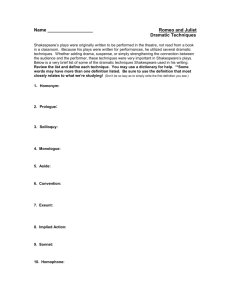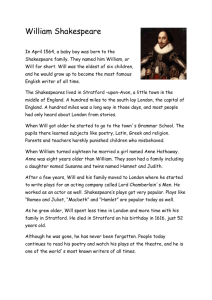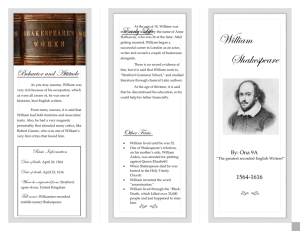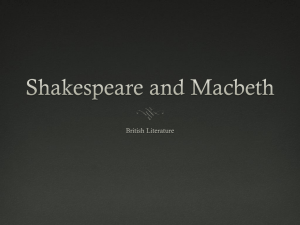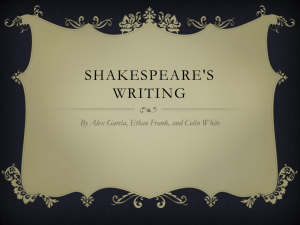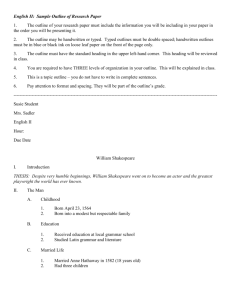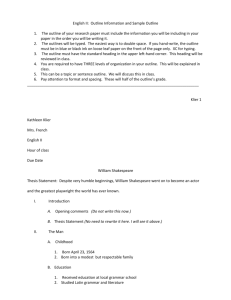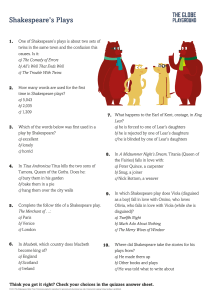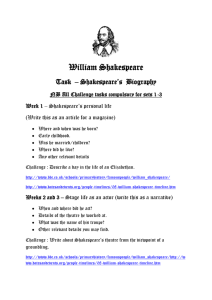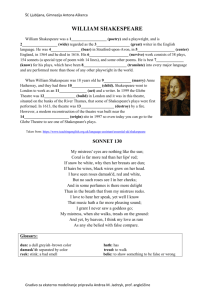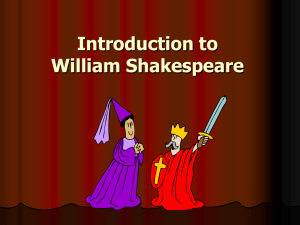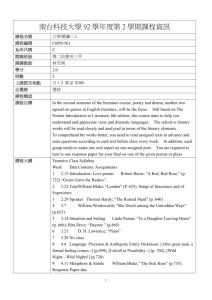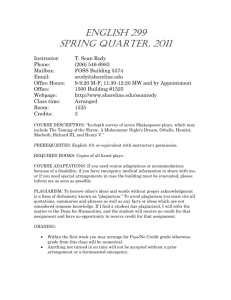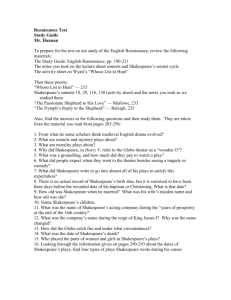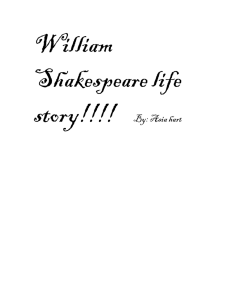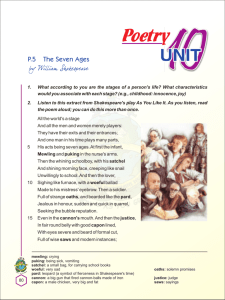English 442
advertisement
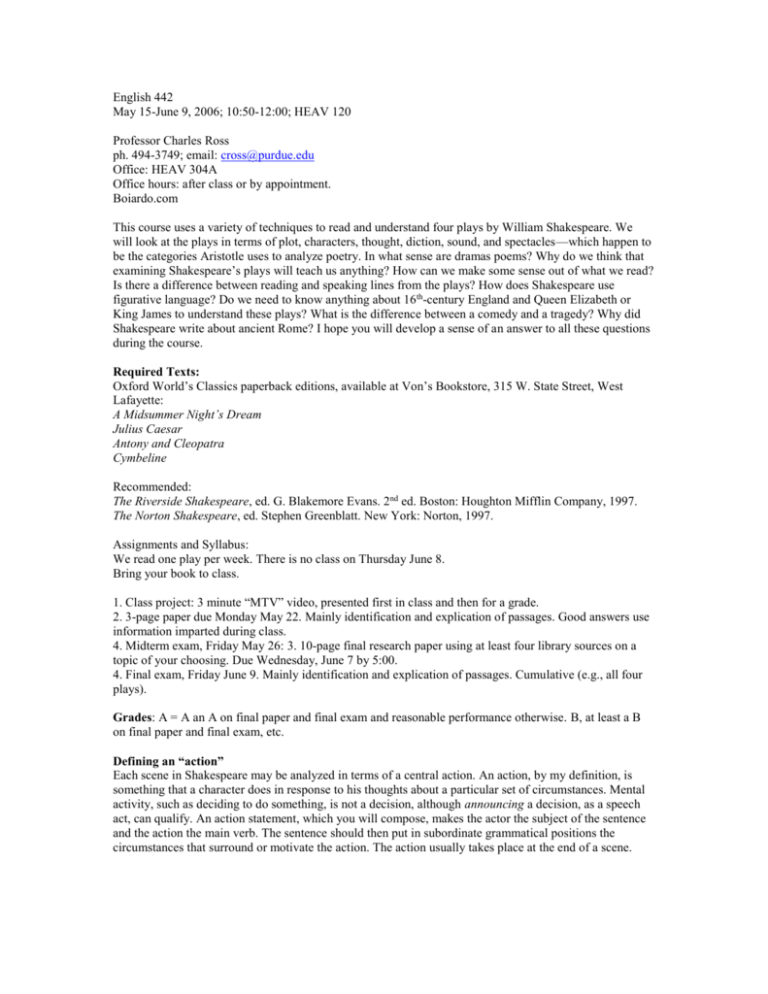
English 442 May 15-June 9, 2006; 10:50-12:00; HEAV 120 Professor Charles Ross ph. 494-3749; email: cross@purdue.edu Office: HEAV 304A Office hours: after class or by appointment. Boiardo.com This course uses a variety of techniques to read and understand four plays by William Shakespeare. We will look at the plays in terms of plot, characters, thought, diction, sound, and spectacles—which happen to be the categories Aristotle uses to analyze poetry. In what sense are dramas poems? Why do we think that examining Shakespeare’s plays will teach us anything? How can we make some sense out of what we read? Is there a difference between reading and speaking lines from the plays? How does Shakespeare use figurative language? Do we need to know anything about 16th-century England and Queen Elizabeth or King James to understand these plays? What is the difference between a comedy and a tragedy? Why did Shakespeare write about ancient Rome? I hope you will develop a sense of an answer to all these questions during the course. Required Texts: Oxford World’s Classics paperback editions, available at Von’s Bookstore, 315 W. State Street, West Lafayette: A Midsummer Night’s Dream Julius Caesar Antony and Cleopatra Cymbeline Recommended: The Riverside Shakespeare, ed. G. Blakemore Evans. 2nd ed. Boston: Houghton Mifflin Company, 1997. The Norton Shakespeare, ed. Stephen Greenblatt. New York: Norton, 1997. Assignments and Syllabus: We read one play per week. There is no class on Thursday June 8. Bring your book to class. 1. Class project: 3 minute “MTV” video, presented first in class and then for a grade. 2. 3-page paper due Monday May 22. Mainly identification and explication of passages. Good answers use information imparted during class. 4. Midterm exam, Friday May 26: 3. 10-page final research paper using at least four library sources on a topic of your choosing. Due Wednesday, June 7 by 5:00. 4. Final exam, Friday June 9. Mainly identification and explication of passages. Cumulative (e.g., all four plays). Grades: A = A an A on final paper and final exam and reasonable performance otherwise. B, at least a B on final paper and final exam, etc. Defining an “action” Each scene in Shakespeare may be analyzed in terms of a central action. An action, by my definition, is something that a character does in response to his thoughts about a particular set of circumstances. Mental activity, such as deciding to do something, is not a decision, although announcing a decision, as a speech act, can qualify. An action statement, which you will compose, makes the actor the subject of the sentence and the action the main verb. The sentence should then put in subordinate grammatical positions the circumstances that surround or motivate the action. The action usually takes place at the end of a scene.
